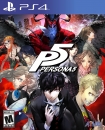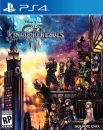zorg1000 said:
Is inflation not a thing?
How would they sell far more than 15 million when they were supply constrained for most of the first year?
Hes right, you dont know what youre talking about. |
Price tag>inflation. Value is relative to the consumer. If these consoles were at inflation costs, comparative to the late 70's, they'd be pushing a thousand dollars. People see a price tag and associate it with the product regardless of the time it released. A game console's sweet spot is $199.99... and always has been. Anything over $249.99 and it becomes harder to sell... which is why Nintendo has only done it twice.
People have paid more, of course. The PS2 was $299.99 and moved quite well and so is the Switch. The PS4 as well. But history shows that once they drop below that $200.00 range, they really fly off shelves. Most of the PS2 sales were at that price point.
Last edited by AlfredoTurkey - on 29 March 2018

























































